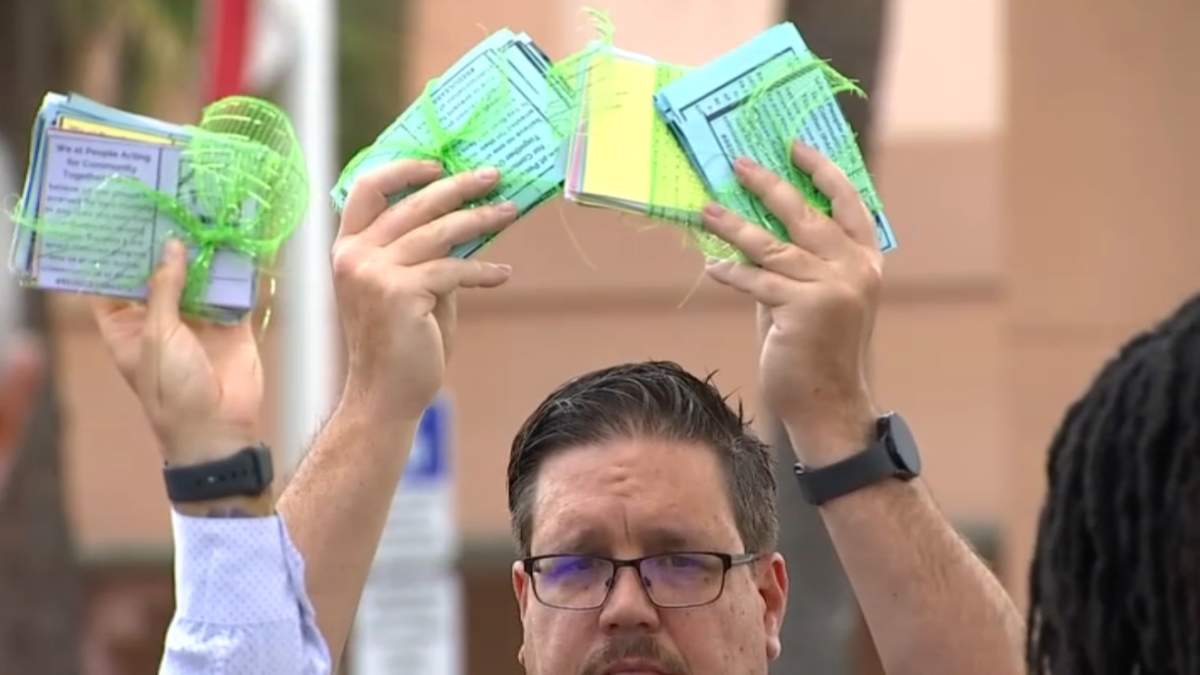Miami Beach IG targeted by commissioners scorn watchdog
By Francisco Alvarado, FloridaBulldog.org
Two Miami Beach commissioners are on a mission to fire or at least muzzle the city’s independent watchdog for doing his job too aggressively.
David Richardson and Ricky Arriola are sponsoring legislation that would take away Miami Beach Inspector General Joseph Centorino’s ability to conduct internal audits of city departments, vendors and contracts.
And because Centorino stood up to their power grab, Richardson and Arriola unsuccessfully attempted to have Miami Beach’s first inspector general fired at the city commission’s Nov. 16 meeting.
“I consider this to be an outrageous attempt to undermine the independence of the office of inspector general as provided in the Miami Beach charter,” Centorino told the city commission. “And to retaliate against the inspector general’s office for simply doing its job.”
Reached by phone the day after the meeting, Centorino declined comment.
MIAMI BEACH COMMISSIONERS DEFEND ATTACKS
In separate interviews with the Florida Bulldog, Richardson and Arriola defended their attacks against Centorino and his office.

Richardson accused Centorino and his staff of secretly pressuring Miami Beach residents who are members of city boards and homeowner groups to oppose his measure. “He is calling homeowners to do him a favor,” Richardson said. “It’s a huge conflict of interest, and it’s shocking my colleagues didn’t see that.”
Arriola claimed the inspector general’s office audits bog down city projects, and that Centorino, a former public corruption prosecutor, is more interested in conducting investigations than identifying inefficiencies in the city’s administration.
“I have no ax to grind with Joe,” Arriola said. “It sounds like a good thing, but I think that [the inspector general’s office] is a waste of taxpayer money.”
MIAMI BEACH FIRST WITH INDEPENDENT WATCHDOG
In November 2018, Miami Beach became the first municipality in Miami-Dade County to get an independent inspector general when voters approved the creation of the office by an overwhelming 81 percent. Enshrined in the city charter, only voters can abolish the inspector general’s position, but city commissioners have the authority to hire and fire whoever is the top watchdog.
In addition to conducting investigations to root out fraud and corruption, the inspector general also assumed the role of internal auditor. Close to a dozen auditors that reported to the city’s chief financial officer were transferred to the inspector general. The watchdog agency, which has subpoena power, also employs a handful of special agents.

In 2019, the city commission voted to hire Centorino, whose previous job was executive director of the Miami-Dade ethics commission for seven years. Centorino also put in a long tour as a Miami-Dade assistant state attorney, overseeing the prosecution of public-corruption cases from 1995 to 2011. His current gig pays him an annual salary of $210,000.
Robert Starkman, a Miami Beach resident who sits on the city’s audit committee, said the board pushed to have the inspector general oversee internal audits as the “best way to ensure independence and transparency.” Previously, routine annual audits of city programs and contracts would often languish or not get completed, Starkman said.
“It insulates internal auditors from political pressure in cases of favored vendors or external organizations,” Starkman said. “It also gave the inspector general experienced staff and avoided duplicating staff. We saved a lot of money by combining these functions.”
Among the inspector general audits that have produced beneficial results for the city is an ongoing operation cracking down on sanitation companies that provide roll-off metal trash containers to local businesses but are not paying the city business taxes. According to an October inspector general report, the city issued 30 violation notices to sanitation companies in 2018. In a 12-month period that ended in October, the city issued 462 violation notices. In addition, the inspector general’s audits resulted in Miami Beach collecting a combined $225,895 from six companies that hadn’t paid business taxes since 2018, the report states.
AUDITING POWER UNDER FIRE
This month, the inspector general released an audit concerning delays and skyrocketing costs of an infrastructure project meant to reduce flooding in Miami Beach’s Sunset Harbour neighborhood. According to the report, former Miami Beach Mayor Philip Levine, when he was in office in 2014, pressured city staff to fast-track the project, but his demands had the opposite effect. Among the audit’s findings: Staff improperly relied on emergency declarations to justify the awarding of no-bid contracts, violated terms of an agreement with the Florida Department of Transportation, authorized the construction of a seawall without permits and more than doubled the project’s $25 million estimated cost.

Despite prolific work by the inspector general’s auditors, Richardson placed an ordinance, co-sponsored by Arriola, on the July 20 city commission agenda to create a separate internal auditor position reporting to the city manager, and reassign the auditors away from Centorino’s office. The city commission voted to refer the proposed measure to their finance committee, which is chaired by Richardson. Arriola is the vice chairman.
Richardson, an accountant whose first job was as a Department of Defense auditor, told Florida Bulldog he believes the city should have an internal auditor that doesn’t answer to the inspector general. “It’s just not best practice,” Richardson said. “We don’t hold the inspector general accountable for management of the city. Centorino is also not qualified as an auditor. He’s a career prosecutor.”
During the Nov. 16 meeting, Richardson told his colleagues that he received a call from a resident who had spoken with Centorino asking him: “Why do you want to gut the inspector general’s office?”
“That is when I first learned our own IG was making phone calls to HOAs to encourage them to condemn my proposal,” Richardson said. “You can imagine how troubled I am by this.”
Richardson revealed he made a public records request for emails sent by Centorino and his staff to constituents and advisory board members since he introduced his legislation over the summer. On a large screen, Richardson displayed a July 22 email Inspector General Special Agent Jani Singer sent to a resident asking him to consider opposing his ordinance.
MIAMI BEACH DEPARTMENT ‘GONE ROGUE’?
Richardson blasted Singer for allegedly lobbying the resident during her work hours. “When we are paying them to do audits and investigations, they are spending time trying to kill my proposal,” Richardson said. “This is a department that has gone rogue. They are out of control. They think they are not accountable to anyone.”
The commissioner also claimed Centorino was “a very powerful man” who “has a lot of friends in high places.”
Arriola chimed in as well. He accused Centorino of engaging “in politics against his bosses” and that the inspector general was “deliberately trying to be sneaky” in mounting opposition against Richardson’s ordinance. Arriola also claimed that he’s spoken with rank-and-file employees who have described Centorino and his staff utilizing aggressive investigative tactics.
“Some of [them] have felt harassed, intimidated and threatened by the inspector general and his team,” Arriola told his colleagues. “They walk into people’s offices with video cameras, tell them to step away from your desk and that they are going to ask you questions now. This is not the way to treat people.”
Arriola told his fellow commissioners that he was ready to give Centorino the heave-ho, or at the very least, a vote-of-no-confidence.
CENTORINO RESPONDS
Following Richardson’s and Arriola’s diatribes, Centorino defended his efforts to raise alarms among the commissioners’ constituents and advisory board members. “This is premised on the idea that the inspector general should have no right to oppose legislation that it believes will affect and significantly diminish its independence,” Centorino said. “I don’t agree with this interpretation. As an agency independent of the city administration, the Office of Inspector General is uniquely accountable to the citizens.”
Centorino relayed that Richardson submitted the ordinance taking away his auditing duties without speaking to him first about its potential impact. “The actions taken by me that the commissioner found so offensive should be viewed by the sudden, unexpected and drastic proposal from that commissioner that lacked input from those most affected by it,” Centorino said. “I didn’t learn about that ordinance until it was already drafted in secret and placed on the commission’s agenda just days before its [July] meeting. It felt like an ambush.”
Mayor Dan Gelber and Commissioners Alex Fernandez, Steven Meiner and Kristen Rosen Gonzalez refused to entertain Arriola’s call to censure or terminate Centorino. But the city commission voted to hold a separate meeting to review the functions of the inspector general at a later date. Richardson’s resolution is also scheduled for discussion at the Jan. 20 finance committee meeting before it goes back to the city commission for a full vote before seven commissioners. The seventh will be added after a Dec. 6 runoff between Sabrina Cohen and Laura Dominguez.
“I don’t support a vote of no confidence,” Gelber said. “I understand my colleague’s concerns, but I don’t share their view on the gravity of [Centorino’s] conduct. I do think we do need to make sure the auditing function is optimizing government operations.”




